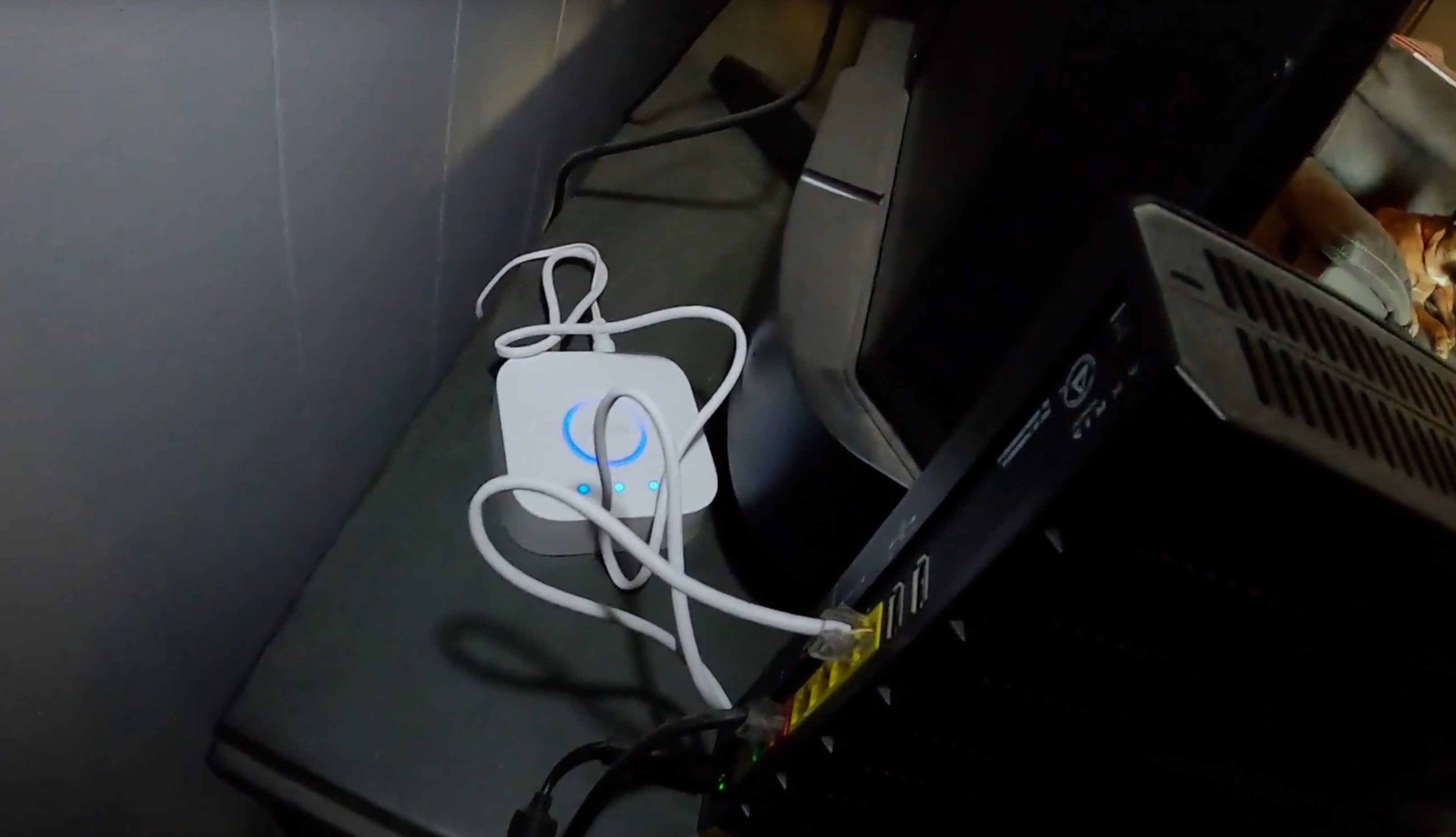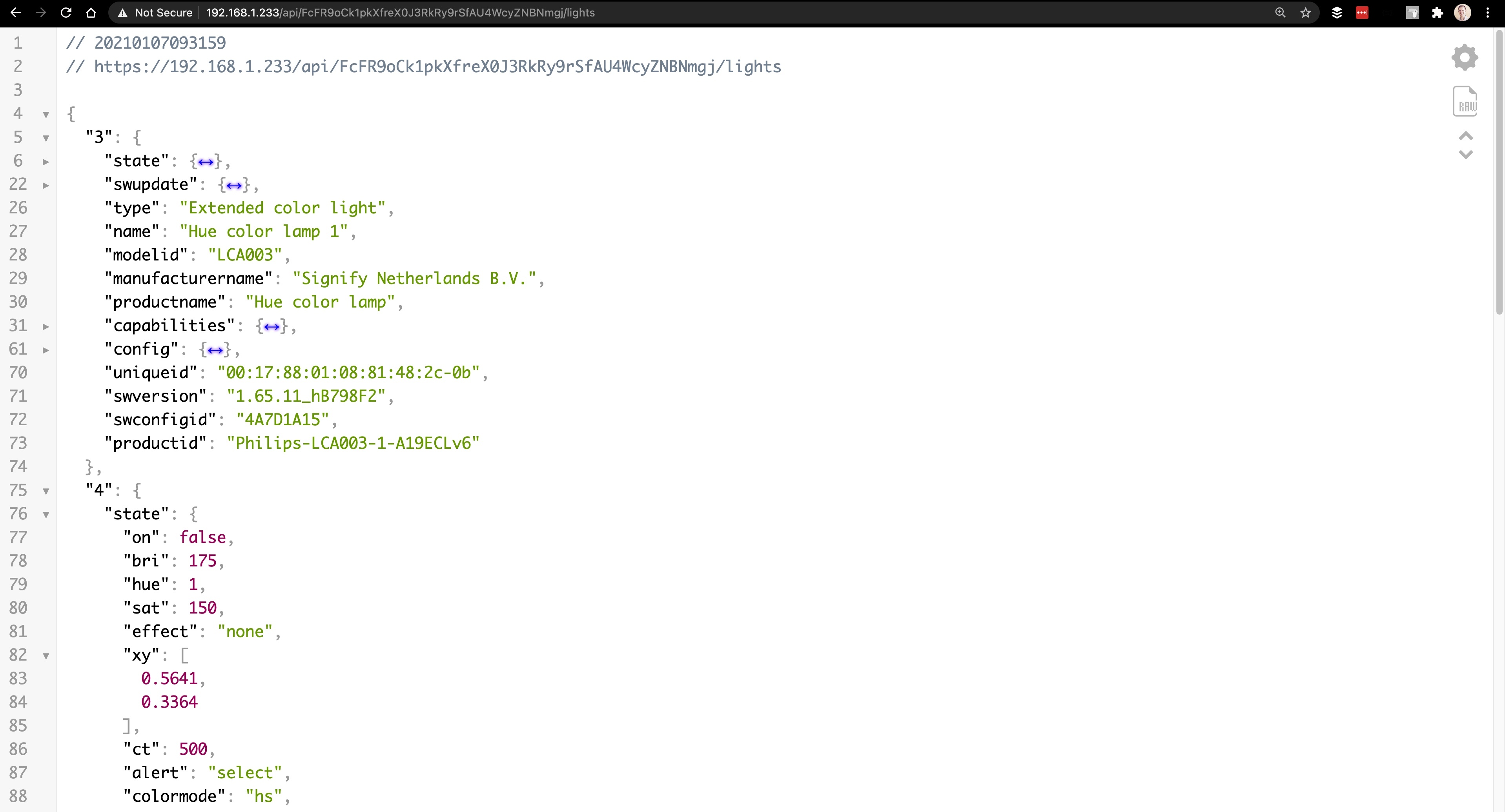Philips Hue lights are easy to setup and control from a mobile app, but what if you wanted to control them from JavaScript? In this article, you'll find out how.
Getting Started
First, you'll need to get yourself a bulb or two. You can find lots of options on Amazon. Then, to control your lights programmatically, you need a Hue Bridge (which is sometimes called a “Smart Hub”) connected to your router.
For details on setting up the hub and your bulb(s), refer to their official documentation. After you finish this setup, you should be able to control your light(s) from the Hue mobile app.
Prerequisites
You will need Node.js installed to send HTTP requests to control your bulbs. For making those requests, you need three things.
- the IP address of your hub
- a username
- the ids of your bulbs
You can the first two by following the official documentation.
To find the id of your bulbs, you'll need to type the following url into your browser.
https://<HUB_IP>/api/<YOUR_USERNAME>/lights
This will show you relevant information about your lights. Note that the top-level object keys are the ids for your bulbs. Also, take a look at the state info for each. We'll be updating the state of our bulbs next.
Turn Lights On/Off
To control a given light, you'll need to send a PUT request to the following endpoint.
http://<HUB_IP>/api/<YOUR_USERNAME>/lights/<LIGHT_ID>/stateIn that request, you'll need to include a body object with a property of on which is set to a boolean. Here's what it would look like to turn on a bulb with an id of 3.
const test = async () => {
const url = `http://${process.env.HUE_BRIDGE_IP}/api/${process.env.HUE_USERNAME}/lights/3/state`;
try {
return await axios.put(url, {
on: true,
});
} catch (err) {
console.error(err);
}
};
test();To turn that light off, you can set the on property to false. However, we can do a bit better with this code by creating a general function like so:
const turnLightOnOrOff = async (lightId, on) => {
const url = `http://${process.env.HUE_BRIDGE_IP}/api/${process.env.HUE_USERNAME}/lights/${lightId}/state`;
try {
return await axios.put(url, {
on,
});
} catch (err) {
console.error(err);
}
};Then call it appropriately.
turnLightOnOrOff(3, true); //turn light 3 on
turnLightOnOrOff(3, false); //turn light 3 offSet Lights to Christmas Colors
Hue allows you to control the color of your bulb by using values for hue, saturation, and brightness (HSB). Therefore, you can update your turnLightOnOrOff function to accept values for each and conditionally pass them in the body of your request.
const turnLightOnOrOff = async (lightId, on, hue, sat, bri) => {
const url = `http://${process.env.HUE_BRIDGE_IP}/api/${process.env.HUE_USERNAME}/lights/${lightId}/state`;
try {
return await axios.put(url, {
on,
...(hue && { hue }),
...(sat && { sat }),
...(bri && { bri }),
});
} catch (err) {
console.error(err);
}
};There is one caveat with the Hue values used in these bulbs. Traditionally, the hue value in HSB is a number between 0 and 360. However, Hue bulbs use a value between 0 and 65,535.
So, if you want to set your bulbs to Christmas colors (one red and one green), create a function like this.
const setLightsForChristmas = () => {
const lightIds = [3, 4];
turnLightOnOrOff(lightIds[0], true, 27306, 150, 175);
turnLightOnOrOff(lightIds[1], true, 1, 150, 175);
};...and voila!
Set Lights to Random Colors
Let's say you want to spice it up a bit and set your lights to random colors. All you need to do is calculate a random hue value for each bulb. You can hardcode the saturation and brightness values to any you prefer.
const setLightsToRandomColors = async () => {
const lightIds = [3, 4];
lightIds.forEach((id) => {
const hue = Math.floor(Math.random() * 65535) + 1;
const sat = 200;
const bri = 175;
turnLightOnOrOff(id, true, hue, sat, bri);
});
};...and voila!
Wrap Up
JavaScript is an empowering language, and I'm excited to explore what other fun ideas I can come up with. I've already tied these hue lights into command bot on Twitch. More on that to come!










